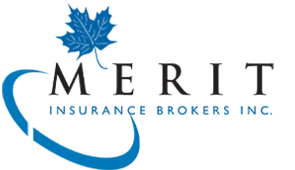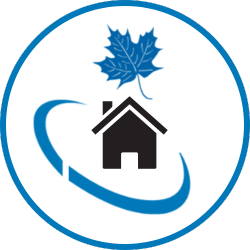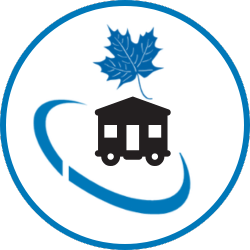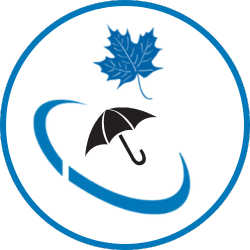Condo Insurance
Although your condominium corporation insurance covers the building and common areas, individual owners need their own condo insurance. This protects personal assets like furniture, clothing, and valuables, as well as damages from upgrades made to the unit. As a condo owner, you may also be held responsible for damages to common areas or lawsuits involving the condo corporation. Without condo insurance, you’ll have to cover these costs yourself.
Types of Condo Insurance
Two coverage options are available:
- Comprehensive (All Risk) – Covers all risks except those excluded in the policy, subject to deductibles and limits.
- Named Perils—This policy covers only the specific hazards listed in it and is also subject to deductibles and limits.
Contents
Your personal belongings (furniture, jewelry, artwork, collectibles, electronics, etc.) are insured, though Special Limits may apply. This coverage is available under both All Risk and Named Perils policies.
Personal Liability
If someone is injured or their property is damaged while on your property, personal liability coverage helps protect you from financial responsibility. This coverage applies worldwide.
Benefits
- As a condo owner, you need coverage for contents and liability, plus additional protection not available in a regular Tenant policy.
- Personal Contents cover your belongings and others’ possessions while they are in your care, on your property, or temporarily removed.
- Unit Contingency covers damage to your unit if the Condominium Corporation’s insurance is inadequate or unavailable.
- Betterments and Improvements cover damages to unit upgrades you made.
- Loss Assessment pays for your share of special assessments following a direct loss to the shared property.
- Personal liability protects against visitor injuries or accidental damage to someone else’s property.
- Additional living expenses cover costs if you can’t stay in your home during repairs from a claim.
Being a condo owner is a sound investment that requires protection. Talk to a Merit broker for a personalized assessment on the liability, contents, or other considerations for your condo, and get a custom quote today. Click here to get a Condo Insurance quote or contact Merit Insurance Brokers to learn more.
FREQUENTLY ASKED QUESTIONS
What does my home insurance policy cover?
A typical home insurance policy in Ontario covers your dwelling, detached structures, personal property, additional living expenses, personal liability, and medical payments. It provides protection against perils such as fire, theft, vandalism, and water damage. However, coverage and limits can vary depending on the specific policy and insurance company. It’s important to review and understand your policy to ensure you have the right coverage for your needs.
How much home insurance do I need?
The amount of home insurance coverage is calculated based on the rebuilding cost of the dwelling. Once this amount is determined the premiums are based on this limit. The home insurance package includes any outbuildings on the location, personal contents, additional living expenses should you need to move out of your home due to an insured loss and your personal liability.
What should I set my deductible at?
Deductible is a form of co-insurance. How much are you prepared to pay in the event of an insured loss? The higher the deductible chosen lowers the annual premium.
How much personal liability protection do I need?
As society is changing to be more litigious, higher liability limits are recommended. The cost to increase your liability limit is minimal and worth considering. A Personal Umbrella Liability policy may be a good option if you are – A Frequent Traveller, High Net-worth Individual, Volunteer, Owner of Rental Properties, Pet Owner or Social Media Users (excluding influencers and media personalities).
How can I save on my home insurance?
Increasing your deductible will lower your premium. Addition of monitored alarm system for discount. Updates to your home. Updated electrical, heating, plumbing and roofing will help reduce premium. Install back-water valve in basement. If you have a sump pump install battery back-up.
How does homeowners’ insurance differ from renter’s insurance?
Homeowners’ insurance is a type of insurance that provides coverage for the property and possessions of a homeowner, as well as liability protection in case someone is injured on their property. It also includes coverage for damage caused by natural disasters, theft, or vandalism.
On the other hand, renter’s insurance is designed to protect the possessions of tenants living in a rented property. It typically includes coverage for personal belongings, liability protection, and additional living expenses if the tenant is temporarily displaced due to damage to the property.
In Ontario, homeowners’ insurance is not mandatory for those who own a property, but if they have a mortgage, the mortgage company will require insurance to be in place. Renter’s insurance is optional for tenants, but most landlords will not lease the unit until the renter provides evidence of insurance.
Homeowners’ insurance policies also include coverage for detached structures such as garages or sheds, while renter’s insurance policies generally do not cover structural damage to the property.
Will I need a home inspection before getting home insurance?
While a home inspection is not a legal requirement to obtain home insurance in Ontario, it is highly recommended to get one before purchasing insurance. An inspection can reveal potential issues or hazards that may affect your coverage, such as structural problems, water damage, or outdated electrical or plumbing systems. By identifying these issues early on, you can address them and potentially avoid future insurance claims. Additionally, some insurance companies may require an inspection before providing coverage, especially for older homes or high-risk properties.
How can I lower my homeowners’ premiums?
Increasing your deductible will lower your premium. Addition of monitored alarm system for discount. Updates to your home. Updated electrical, heating, plumbing and roofing will help reduce premium. Install back-water valve in basement. If you have a sump pump install battery back-up.
Is my jewelry covered by my homeowners’ insurance?
Jewellery is covered under the basic personal property policy, subject to limits. Basic limit varies by insurance company. Recommend anyone with jewellery speak to their broker on whether scheduling is required or if increasing the basic limit would be sufficient for their circumstances.
Is my locker insured under my contents insurance?
The answer depends on your specific contents insurance policy. Some policies may include coverage for personal property kept in a locker, while others may not. It’s best to review your policy documents or contact your insurance provider to determine whether your locker is covered and what types of losses are included. Additionally, some facilities may offer separate insurance options for lockers, so it’s worth checking with them as well.
How is condo insurance different from tenants insurance?
As a condominium owner you also share in any losses to the common areas of the condominium. Loss assessment coverage is included in the Condominium Unit Owners policy. Policy will cover your portion of the Condominium Corporations deductible. You should let your broker know the deductible amount that you would be responsible for to ensure that your policy has the right limit.
How much contents insurance do I need?
Only you know how much contents you own. Should there be a fire in your unit and everything was destroyed, how much do you need to replace everything. Most people only think of the high value items, but what about your clothing, dishes, towels and sheets. These would need to be replaced too.
A tree fell on my property do I have coverage?
It depends on the specifics of your insurance policy. In Ontario, standard home insurance policies typically cover damage caused by falling trees, including removal of debris and repair costs. However, there may be limitations or exclusions depending on the cause of the tree falling, the extent of the damage, and your specific policy. It’s best to contact your insurance provider to confirm your coverage and next steps for filing a claim.
A raccoon-damaged attic is it covered?
It depends on the specific terms and coverage of your insurance policy. In Ontario, homeowners insurance policies typically cover damages caused by certain types of wildlife, including raccoons. However, the coverage may be limited, and some policies may exclude certain types of damage or require additional coverage for animal-related damages.
Any content coverage for children away while attending college?
Most primary property insurance policies extends coverage to students living away from home. There may be territory exclusions on the policy if the student is attending a school outside of the country. It is important to discuss this with your broker to confirm your policy will extend to cover both the physical contents as well as the liability for these students.
Is a policy transferable other than husband and wife?
In Ontario, insurance policies are generally not transferable to individuals other than spouses. The reason for this is that insurance policies are contracts between the policyholder and the insurance company, and the terms of the contract are specific to the individual policyholder. However, in some cases, a policyholder may be able to transfer their policy to a new owner through a process called assignment, which involves obtaining the consent of the insurance company and complying with certain legal requirements.
How long can a risk location stay vacant while it’s being up for sale?
Most insurance policies allow locations to be vacant for 30 days. After 30 days the coverage is void if Insurance Company has not been notified and a Vacancy Permit added to the policy. With a Vacancy Permit there are still some additional exclusions that would still apply to the location.
My condominium corporate policy has a deductible, how does that affect me?
If your condominium corporation has a deductible, it means that in the event of a claim, the corporation is responsible for paying a portion of the costs before insurance coverage kicks in. As a condo owner, you may be responsible for paying your share of the deductible, which is typically divided among all unit owners. This can result in unexpected expenses for you, so it’s important to understand your condo’s insurance policy and deductibles to ensure you’re prepared for any potential costs.
Is my home-based business covered by my homeowners’ insurance?
Short answer:
Not unless you have a home-based business endorsement on your homeowner’s insurance policy. Many of our carriers offer this as an add-on feature of their clients who request it. Let’s have a chat to see if you require this or any other insurance product based on your business exposures.
Detailed answer:
Since the start of the pandemic, many have been working from home full-time. Even before that though, many entrepreneurs have been home-based. However, do they actually need Home Business Insurance?
That depends. Consider some questions we ask clients who run home-based businesses:
- Do customers or clients come to your home for any reason? This could include picking up an order or having an in-person meeting.
- Do you keep inventory or stock in your home or at off-site job locations including storage facilities?
- Would you lose income if you had to cease operations due to damage to your home?
- Do you have employees working in or outside of your home?
- Do you maintain client or employee records on your computer or any other electronic devices?
If you answered “yes” to any of these questions, you may want to check your policy wordings and coverage limits. In this case, home liability insurance might not provide enough protection for your home-based business.
Without the right coverage, your business could be responsible to pay out of pocket for:
- Damage to property
- Liability leading to lawsuits
- Injuries to employees
- Data loss issues
The personal liability provided on your homeowner’s insurance policy will not cover professional claims of any kind.
Are tenants in the basement covered by my homeowners’ insurance?
Short Answer:
Tenants are NOT COVERED for property damage or liability under the homeowner’s insurance policy. Simply put, if a tenant burns down your home and they do not have their own insurance; the insurance company can deny paying that claim. It is essential to not only have landlord’s coverage but make sure any and all tenants have renter’s insurance. Make it part of your rental agreements as it protects both parties accordingly.
Detailed Answer:
The basic homeowner policy will not adequately cover either the tenant nor the landlord. Here are a few reasons why.
Landlord insurance can cover the following things (depending on the policy):
- Property Damage:
Landlord insurance covers any damage to the property caused by perils, such as a windstorm or fire. It may also cover tenant vandalism to the property or damage to the landlord’s personal property (such as appliances), but it will not cover damage to a tenant’s personal property. - Landlord Liability:
If a tenant or guest is injured on the property, the landlord may be liable to pay legal and medical expenses for the injured party. Landlord insurance can cover those expenses for the landlord if they are liable for damages. - Loss of Income:
If the rental property becomes unusable for a reason that is covered by the policy, the insurance may also cover the landlord’s loss of rental income from the property.
Renter’s insurance, on the other hand, covers the following:
- Personal Property:
If the tenant wants to cover personal belongings that you keep at the rental property, they are going to need their own renter’s insurance because the landlord’s policy won’t cover it. - Personal Liability:
The landlord’s insurance protects them against legal liability, but it won’t protect the tenant. It’s possible that the tenant could be liable for damages if someone is injured on the property, so the tenant would need their own insurance policy to cover that. - Loss of Use:
If the property were to become uninhabitable, insurance would protect the tenant from being homeless by providing money for temporary living and food. The landlord’s policy won’t that payout to the tenant.
The bottom line is unless your landlord went out of their way to include you in their insurance policy (which is hardly ever the case), a tenant requires their own renter’s insurance to be protected.
Why are there so many water coverages and which one do I need?
Short Answer:
According to the Insurance Bureau of Canada, $2 billion has become the new normal for yearly catastrophic losses – most of this is due to water-related damage. These damages occur in different forms and have various root causes. This is why there are so many types of water coverages in the comprehensive homeowner’s policy.
Detailed Answer:
Many factors go into the necessity of certain water coverages. Age of the dwelling, where it’s located, migitation resources are but a few of the factors worth considering. Here are a few of the common water coverages explained:
- Sewer Back-Up:
Sewer backup is the most common source of water damage claims. This occurs when the sewer drains back up into your home – typically through the basement – caused by a clog in the sewer line, outdated sewer systems, or excess rain. The sewer backup endorsement covers damage from water that comes into your home through pipes, drains, and even septic tanks. - Overland Water:
Historical claims data shows that in Canada, home insurance policies haven’t covered loss or damage caused by overland flooding, which occurs when bodies of freshwater, such as rivers or dams overflow onto dry land. This is no longer the case in most of Canada. Many insurers now offer residential overland flood coverage for the majority of homes across the country. Even if you don’t live by a lake or river, your home could still experience flood damage in a variety of different ways. - Ground Water:
This offers protection when groundwater enters your home suddenly and accidentally through basement walls, foundations or floors. - Above Ground Water:
This covers damage that is caused by water accumulating on the roof of your house, whether as water or as ice or snow.
Take the time to consider your required coverage, talk to your Merit insurance advisor to check if you live in a flood plain, most importantly, always maintain, and check your home against possible water damage.
What type of discounts am I eligible for if I get an alarm system?
Installing a monitored security system is one way you can make your home safer while lowering your policy cost. If your home has safety devices like deadbolts, smart locks, burglar alarms, or a fully monitored security system, you can typically save anywhere from 2–5% on premiums, depending on the insurer.
What isn’t covered by homeowners insurance?
Certain catastrophes, like flooding or earthquakes, are NOT COVERED by basic homeowners policies and require specialized insurance or additional endorsements. In addition, damage caused by wear and tear, rust, corrosion or gradual deterioration, are excluded. To get the full list of exclusions, read your policy wordings or get the personalized service of a Merit Insurance Broker.
What is Sewer Back up and Overland Water?
Sewer backup coverage is water damage resulting from water escape or back up from sewage or malfunction septic system.
Overland Water coverage applies to surface water entering your home as a result of the sudden accumulation of rain, spring runoff, or overflow from freshwater lakes or rivers.
If you chose to only purchase one of these coverages and the insurance company cannot determine what source the water came from if a claim occurs, they could deny the claim. This is why it is important to have both coverages.
What is Service Line Coverage?
Coverage for underground piping and wiring, including permanent connections, valves, or attached devices providing service to your premises.
What is a backwater valve?
A backwater valve is a special type of valve that can be installed at your property to prevent backflow from the sewer entering your home plumbing system.
What items are subject to Special Limits?
Items that have special limits include:
- Jewellery, watches, gems
- Fur garments and garments trimmed with fur
- Numismatic, coin or banknote collections
- Manuscripts, stamps and stamp collections
- Collectibles, including sports cards, memorabilia and comic books
- Business property on your premises
- Securities
- Money, cash cards, bullion
- Watercraft, their furnishings, equipment, motors and accessories
- Motorized garden equipment and golf carts
- Spare automobile parts
- Bicycles, their equipment and accessories
- Computer software
- Personal belongings in a safety deposit box located at a financial institution
- Personal belongs located at a nursing home or long-term care facility
- Wine and Spirits Collections
- Fine Arts
- Silverware
- Personal belongs ordinarily kept at your workplace
- Legal Cannabis and cannabis derivatives
- By-laws
- Outdoor trees, plants, shrubs or lawns
- Debris removal










